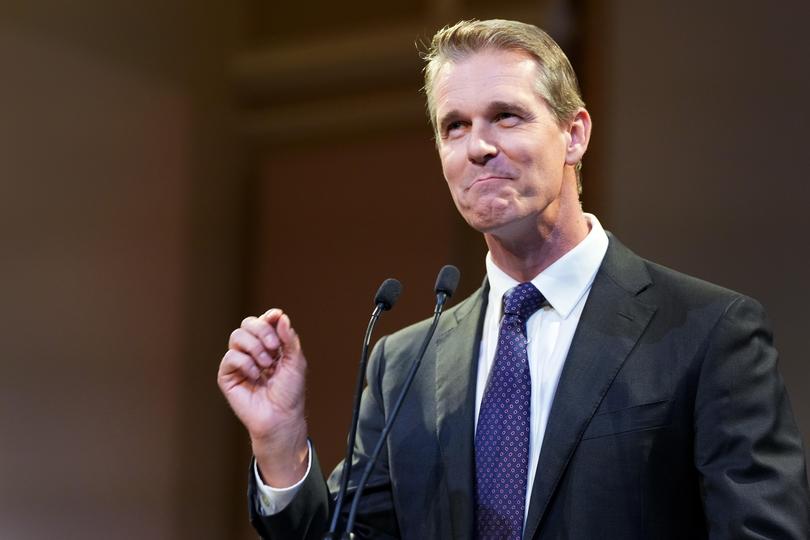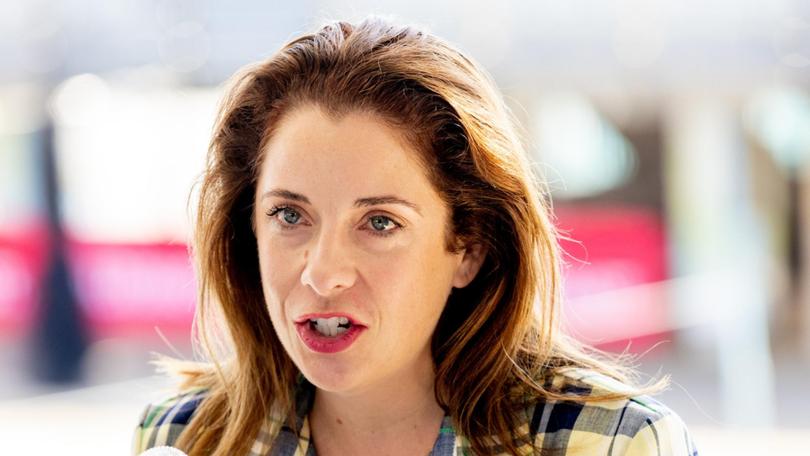AARON PATRICK: The deceptive cleverness of Anthony Albanese’s ministerial Cabinet reshuffle
AARON PATRICK: The prime minister has promoted just enough ministers to create a sense of renewal while keeping almost all his senior team in the same jobs.

The canny old politician he is, Prime Minister Anthony Albanese knows how to shake up a ministry while keeping it stable.
On Monday, with little more than a press release, he created the core of future Labor governments. Anika Wells, 39, Tim Ayers, 52, and Andrew Charlton, 46 were appointed to cabinet, or promoted, marking them as powerful new figures in the Labor world.
At the same time, with the exception of Tanya Plibersek, the Government’s senior echelons remained stable. The team which helped Mr Albanese win a second term was rewarded by keeping their jobs: Treasurer Jim Chalmers, Defence Minister Richard Marles, Finance Minister Katy Gallagher, Home Affairs Minister Tony Burke, Energy Minister Chris Bowen, Infrastructure Minister Catherine King, Trade Minister Don Farrell, Education Minister Jason Clare and Health Minister Mark Butler.
Sign up to The Nightly's newsletters.
Get the first look at the digital newspaper, curated daily stories and breaking headlines delivered to your inbox.
By continuing you agree to our Terms and Privacy Policy.Ms Plibersek’s move from environment to social services looks like Mr Albanese warehousing a rival. The welfare portfolio is important, but cutting pensions as the Government tries to get a rampaging budget deficit under control will make her a lot less popular than saving the Parma Wallaby.
The arrivals
The three new guns, Ms Wells, Mr Ayers and Mr Charlton, are examples of the depth of talent among Labor’s engorged parliamentary ranks. Mr Charlton, a Rhodes Scholar, sold his economics firm to Accenture in 2020 for $35.8 million, according to the Australian Financial Review.

As cabinet secretary, will provide administrative support for the running the Government. He will not make big decisions, but he will see how they are made, providing experience that he no doubt hopes to be able to use as prime minister one day.
He might have to compete against Ms Wells, the minister for communications who entered cabinet in January in the aged-care portfolio. Like several former leaders, including Julia Gillard and Bill Shorten, Ms Wells moved into politics from a Labor-aligned law firm.
She possesses two important talents for a good minister: a grasp of detail, and the ability to explain them clearly.
Then there is the new industry minister, Mr Ayers. Although not old, he is old-school Labor. A powerful back-room operator for over a decade from the union movement, he will be responsible for implementing the prime minister’s plan to make things in Australia. Economists call it protectionism.
Mr Albanese regards it as it common sense.

The losers
Mr Ayers replaces Industry Minister Ed Husic, the now-backbench dweller who complained on Sunday he was the victim of a “factional assassin” in the form Mr Marles, who had to help allocate ministries among their relatively diminished group.
The sight of a member of the NSW Right - notorious for ruthlessness - going on television and whingeing about entirely normal caucus behaviour was so lame that even journalists could barely muster outrage at Mr Albanese’s ministerial-announcement press conference on Monday.
And besides, the Government has a replacement Muslim cabinet minister in its ranks: Anne Aly, who gets multicultural affairs, international development and small business.
It is questionable whether the portfolios require a cabinet slot, but it might help placate some of the pro-Palestinian protesters angry at the Government’s attempt to balance both sides of an intractable conflict.
Which raises the removal of Mark Dreyfus, the Attorney-General who was the government’s most senior Jew. In a difficult job in a turbulent time for law enforcement, Mr Dreyfus was respected for his intelligence and integrity, and willingness to tackle potentially unpopular-but-necessary changes to the legal system. Barrister Arthur Moses, KC, described him on Monday as the most accomplished person in parliament to hold the job.
The Prime Minister did not respect his political judgement, and replaced him with Michelle Rowland, a corporate lawyer who avoided embarrassing mistakes in the communications portfolio, where the stakeholders, as they are known, wield not-inconsiderable clout.
With this mix of the mainly old, and a few new, the PM has changed just enough to create a sense of professional progress among his team without creating powerful forces against him outside the cabinet. It is example of what Mr Albanese is best at: keeping his job.

